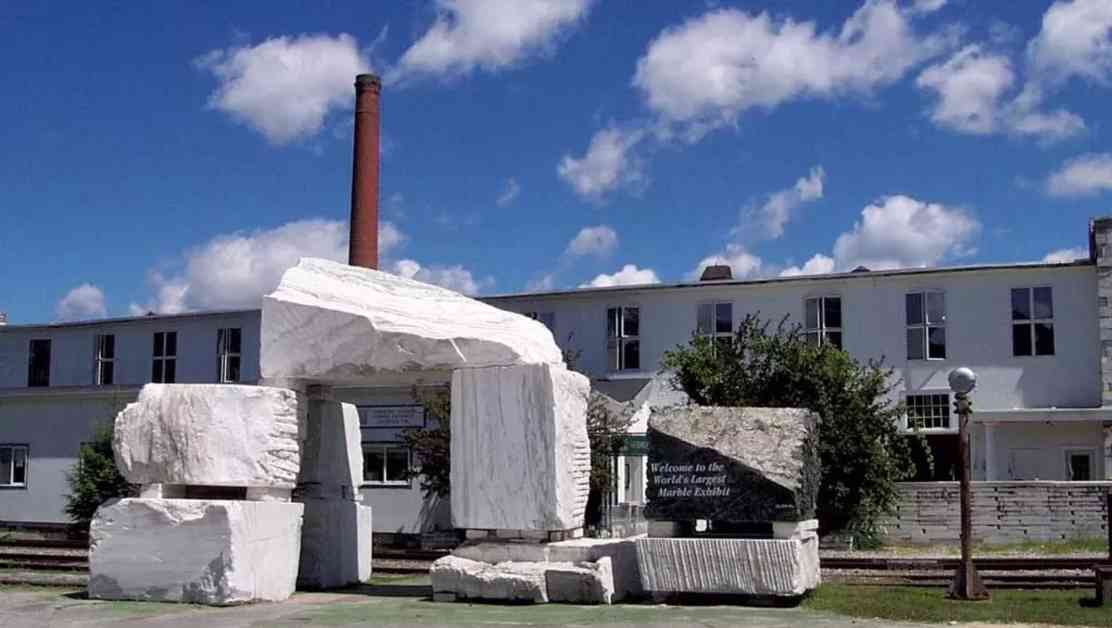The Vermont Marble Museum in Proctor, known for celebrating the legacy of the Vermont Marble Company and its impact on national landmarks, quietly closed its doors last fall after nearly 90 years of operation. The closure marked the end of an era for one of Vermont’s earliest tourist attractions, leaving many to ponder the future of the museum and its historical significance.
Struggles with profitability plagued the museum for decades, with board president Kevin Thornton noting that the pandemic exacerbated these challenges. The reliance on senior bus tours as a primary source of attendance further hampered the museum’s financial stability, leading to its ultimate demise.
The Vermont Marble Museum not only paid homage to the contributions of the Vermont Marble Company in shaping Proctor’s industrial landscape but also highlighted its role in supplying marble for iconic American landmarks. From the Lincoln Memorial to the Tomb of the Unknown Soldier at Arlington National Cemetery, marble quarried or finished in Vermont played a pivotal role in the construction of these historic sites.
Speaking on the closure, Thornton lamented the loss to the nation, underscoring the museum’s cultural significance and the void its absence leaves in the community. The decision to shut down the museum followed years of financial struggles, with previous attempts to save it falling short.
Struggles and Attempts to Save the Museum
In 2012, the museum faced closure and a subsequent sale of its collection by former owners Marsha and Martin Hemm. The Preservation Trust of Vermont intervened, purchasing the museum building and contents to keep its legacy alive. A nonprofit was established to operate the museum, with hopes of financial stability and ownership transfer back to the museum in the future.
Despite these efforts, financial woes persisted, leading to the sale of the building to ZION Growers, an industrial hemp processing company, for a nominal fee. The trust secured a long-term lease on the museum space, ensuring the preservation of its historic elements. Ben Doyle, president of the trust, acknowledged the challenges faced in keeping the museum afloat, emphasizing the diverse strategies employed to maintain its operations.
Legacy and Future Prospects
The closure of the Vermont Marble Museum shed light on broader issues facing museums nationwide, as highlighted in a 2024 survey by the American Alliance of Museums. Financial strains post-pandemic have forced many institutions to delve into reserves or endowments to cover operating costs, signaling a period of recovery and adaptation for the industry.
Looking ahead, the Preservation Trust is actively seeking a new custodian for the museum’s collection, underscoring the importance of preserving Proctor’s marble heritage for future generations. Doyle remains optimistic that the legacy of the marble industry will endure, even in the wake of the museum’s closure, ensuring that its historical significance continues to be shared with the public.
As the Vermont Marble Museum fades into memory, its closure serves as a poignant reminder of the challenges faced by cultural institutions in a rapidly evolving landscape. The echoes of its vibrant past reverberate through the halls of history, inviting reflection on the enduring legacy of Vermont’s marble industry and the stories etched in stone for generations to come.










